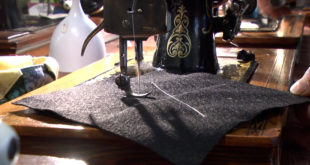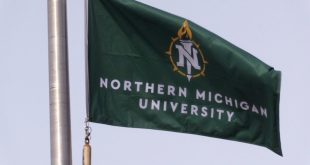The Michigan Department of Natural Resources thinks this deer hunting season will be similar to last year’s for hunters across the state – or maybe a little better.
The DNR says its annual deer hunting forecast aims to give hunters a better idea of what to expect when they’re out in the woods.
The deer harvest in 2014 was down across the state and was especially bad in the Upper Peninsula.
The DNR says hunters in the U.P. should expect to see fewer deer again this year.
However those hunting in the northern Lower Peninsula can expect to see the same – or more deer – than they did last year.
Here is the Complete Deer Hunting Forecast:
2015 deer season forecast and important reminders
With archery deer season just under way, the Michigan Department of Natural Resources would like to share the annual deer season forecast and remind hunters of important changes to the deer regulations for the 2015 deer seasons.
DNR deer program biologists predict that, overall, hunters this season will see similar or slightly increased success rates to last year. The forecast is designed to give hunters a better idea of what to expect in the woods this season and includes regional information breakdowns for the Upper Peninsula, the northern Lower Peninsula and the southern Lower Peninsula. Also included in the forecast are overviews of important changes for this license year, considerations for this season, and updates on wildlife health and diseases.
The annual deer season forecast can be found online at:www.michigan.gov/documents/dnr/Deer_Hunting_Prospects_470587_7.pdf.
For hunters in the Upper Peninsula using a deer or deer combo license, harvest of antlerless deer during the archery season has been eliminated. The restriction, which does not affect the firearm deer season, will be in effect for the 2015-2016 season.
For the 2015-2016 season, a deer or deer combo license in the Upper Peninsula, during archery season, is essentially a “buck-only” license. Antlerless harvest will still be permitted through the allotment of private-land antlerless licenses in deer management units where it was decided that antlerless harvest should be maintained. This includes DMUs 055, 122 and 155.
Archery hunters with a deer or deer combo license in the Lower Peninsula are still able to take antlerless deer during archery season, similar to previous years.
 In addition, deer hunters should be aware that chronic wasting disease has been confirmed in Michigan. CWD is a fatal disease affecting the central nervous system of cervids (deer, elk and moose). Deer hunters who hunt within Ingham, Clinton and Shiawassee counties, the CWD Management Zone, should review changes to regulations in this area, which can be found at www.michigan.gov/cwd.
In addition, deer hunters should be aware that chronic wasting disease has been confirmed in Michigan. CWD is a fatal disease affecting the central nervous system of cervids (deer, elk and moose). Deer hunters who hunt within Ingham, Clinton and Shiawassee counties, the CWD Management Zone, should review changes to regulations in this area, which can be found at www.michigan.gov/cwd.
For those hunting outside Michigan, in a state or province that has CWD in its free-ranging deer, elk or moose, it is critical that only the following parts of deer, elk or moose carcasses are brought into Michigan:
- Deboned meat.
- Antlers.
- Antlers attached to a skull cap cleaned of all brain and muscle tissue.
- Hides.
- Upper canine teeth.
- Finished taxidermy mount.
If a hunter is notified by another state or province that a deer, elk or moose that was brought into Michigan tested positive for CWD, that hunter must contact the DNR Wildlife Disease Lab within two business days (8 a.m. to 5 p.m.) at 517-336-5030.
For more information on deer hunting seasons and regulations, visitmi.gov/hunting. The 2015 Hunting and Trapping Digest and Antlerless Deer Digest can be found online by visiting mi.gov/dnrdigests.
To stay up to date on regulation changes and season information, sign up for DNR email updates to get important natural resources news sent directly to you, when it’s happening.
 Keweenaw Report Your Source for Local News and Sports
Keweenaw Report Your Source for Local News and Sports





